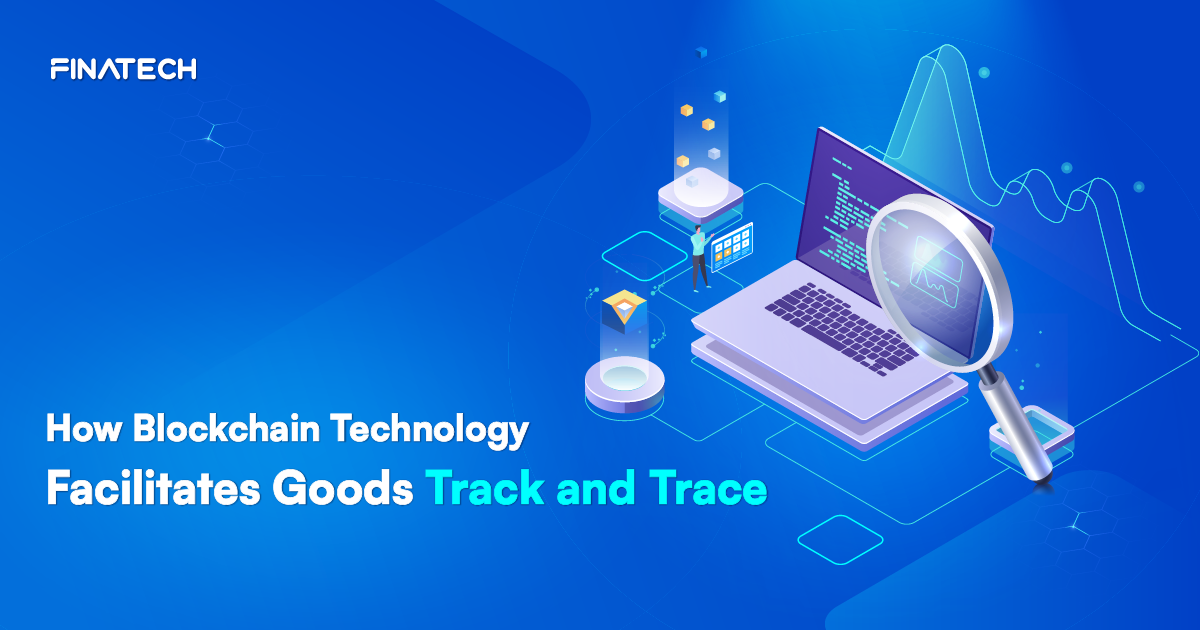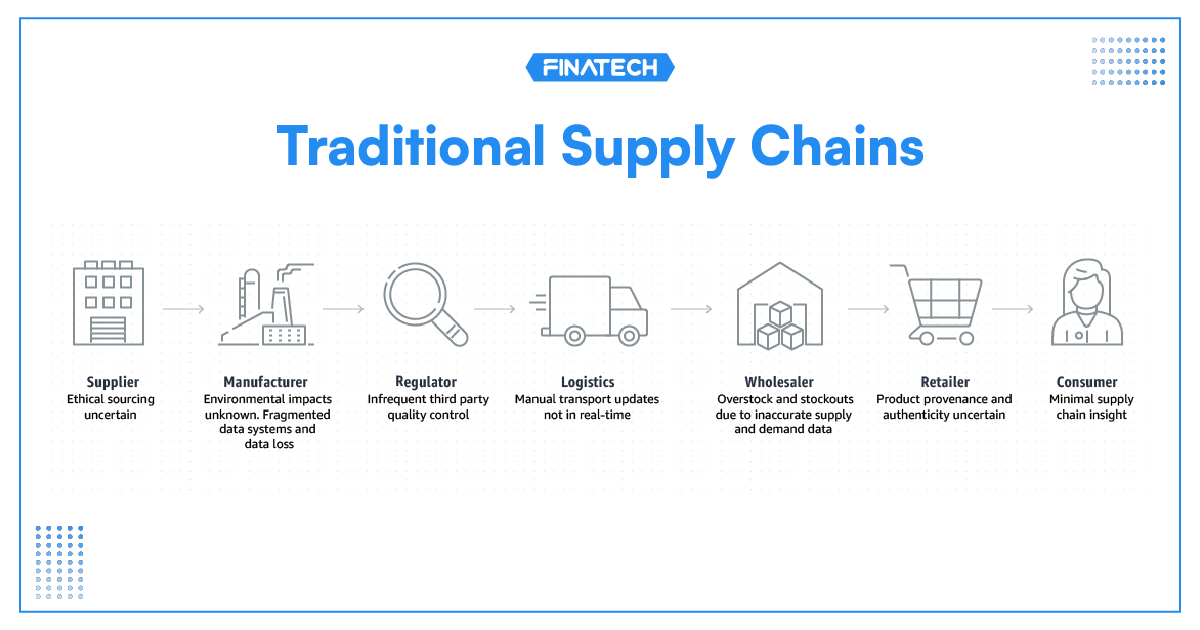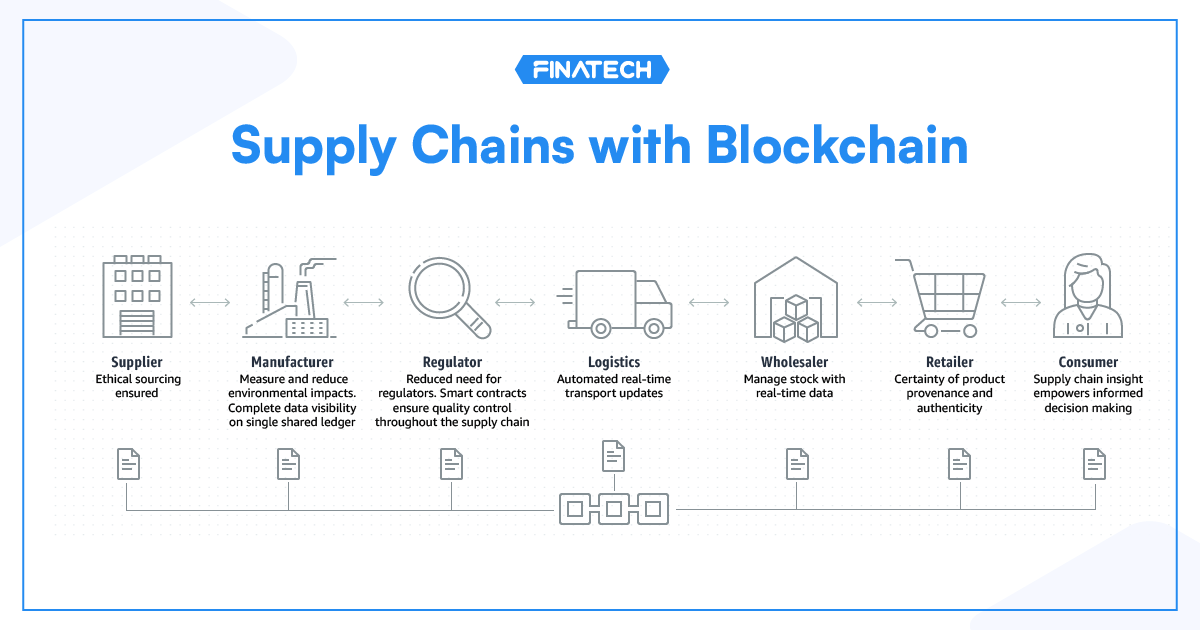How Blockchain Technology Facilitates Origin of Goods/Cargo Track and Trace
Blockchain Web3 Tuesday, May 30, 2023
Blockchain Web3 Tuesday, May 30, 2023

In today's interconnected world, companies across industries face the challenge of effectively tracking and tracing their products and transactions. The need for a reliable and transparent system to ensure the authenticity and integrity of data has never been more crucial. This is where blockchain technology comes into play. With its decentralized and immutable nature, blockchain offers a revolutionary solution for track and trace processes. In this article, we will explore how blockchain technology facilitates track and trace, and why companies looking for outsourcing partners should consider blockchain services in their Web3 functions.
Track and trace capabilities are essential for companies to ensure the transparency, security, and accountability of their products and transactions. By implementing a robust track and trace system, companies can effectively monitor their supply chains, authenticate product origins, prevent counterfeiting, and address any potential issues promptly. These capabilities are particularly crucial in industries such as pharmaceuticals, luxury goods, food safety, and logistics, where consumer trust and regulatory compliance are of utmost importance.
Blockchain technology, known for its decentralized and transparent nature, provides an ideal foundation for track and trace solutions. It enables the creation of a tamper-proof and immutable ledger, ensuring the integrity and authenticity of data throughout the entire supply chain or transaction process.
At the core of blockchain technology lies its distributed ledger, which records and stores all transactions or events in a network of decentralized nodes. This distributed nature ensures that no single entity has control over the entire system, making it highly resistant to tampering and manipulation. Each transaction is recorded in a "block," which is then added to the chain in a chronological and irreversible manner. This means that once a transaction is recorded, it cannot be altered or deleted, providing a high level of trust and transparency.
Blockchain technology also leverages smart contracts, which are self-executing agreements with predefined rules and conditions. Smart contracts enable automation and streamline processes by automatically executing actions when predefined conditions are met. In the context of track and trace, smart contracts can facilitate automated verification and validation of product origins, ownership transfers, and compliance with regulations. This reduces human error, enhances efficiency, and ensures trust in the track and trace process.
With blockchain's cryptographic techniques, data stored in the ledger is protected from unauthorized access and manipulation. Each transaction or event is digitally signed using cryptographic keys, providing a unique and verifiable identity. This cryptographic layer adds an additional level of security to the track and trace process, making it highly resistant to fraud, counterfeiting, and data breaches.
Before the advent of blockchain technology, the process of verifying the origin of products or transactions was often complex and prone to errors or fraud. Companies relied on traditional methods such as paper documentation, physical audits, or trust-based relationships with suppliers. However, these approaches were limited in their ability to provide a transparent and tamper-proof record of the origin of goods or transactions.
With the integration of blockchain technology, the process of origin verification has been revolutionized. Blockchain offers an immutable and decentralized ledger that securely records all transactions and events related to the product or transaction lifecycle. Let's explore how blockchain facilitates the verification of origin, both before and after its implementation.
Prior to the adoption of blockchain, origin verification often involved a manual and labor-intensive process. Companies had to rely on a multitude of documents, including invoices, certificates, shipping records, and third-party audits. These documents were susceptible to loss, tampering, or human error, which undermined the integrity of the verification process.
Additionally, the lack of transparency and real-time access to information made it challenging to track the provenance of products accurately. Supply chains were fragmented, with limited visibility into each stage of production, distribution, and delivery. This made it difficult to pinpoint the origin of goods and identify any potential issues or discrepancies.
 Traditional supply chains
Traditional supply chains
With the implementation of blockchain technology, the process of origin verification becomes streamlined, transparent, and secure. Let's look at how blockchain enhances the verification process at various stages:

Supply chains with blockchain.
By implementing blockchain technology, companies can transform their origin verification processes, enabling greater transparency, security, and trust. The decentralized and tamper-proof nature of blockchain ensures that the origin of products or transactions can be reliably and accurately verified, benefiting industries such as food safety, pharmaceuticals, luxury goods, and more.
In conclusion, blockchain technology revolutionizes the process of origin verification by providing a transparent and secure platform for recording and verifying data. The integration of blockchain ensures traceability, automation, and immutability, enhancing the integrity and reliability of origin verification both before and after its implementation.
In today's fast-paced and interconnected business landscape, the ability to effectively track and trace products and transactions is crucial for companies across industries. Blockchain technology provides a transformative solution that ensures transparency, security, and authenticity in the track and trace process. By leveraging the expertise of outsourcing partners specializing in blockchain services, companies can unlock the full potential of blockchain technology for their Web3 functions.
Finatech, with its extensive experience and expertise in Blockchain Web3 development, is an ideal outsourcing partner for companies looking to implement blockchain solutions. Their track record of successful implementations and commitment to tailored, scalable, and cost-effective solutions make them a trusted choice in the industry. By partnering with Finatech, companies can harness the power of blockchain technology and optimize their track and trace processes, driving operational efficiency and building trust with their customers.